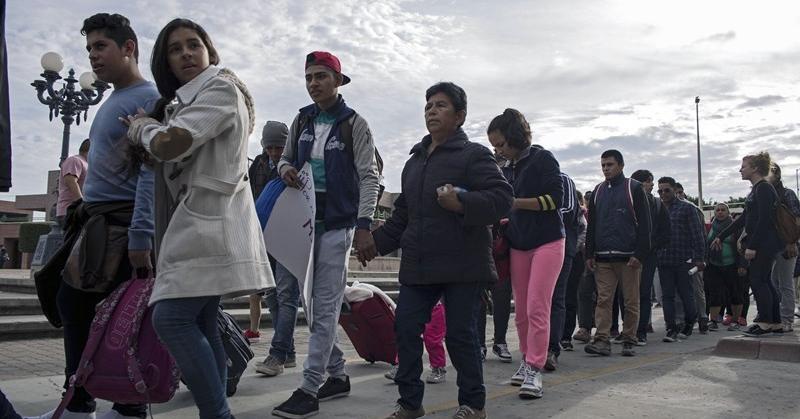The realm of immigration enforcement is a complex and often contentious arena, where governments strive to secure borders and regulate the flow of people while simultaneously safeguarding individual rights. Striking the right balance between security measures and the protection of rights is a perpetual challenge. In this exploration of immigration enforcement, we delve into the mechanisms, legal considerations, and the delicate equilibrium between national security imperatives and the preservation of individual rights.
Understanding Immigration Enforcement
Immigration enforcement encompasses a range of measures aimed at controlling and managing the movement of people across borders. These measures can include border control, visa regulations, detention, deportation, and the activities of immigration enforcement agencies.
Border Control and Security Measures
The first line of defense in immigration enforcement is often border control. Nations employ a variety of security measures, including physical barriers, surveillance technology, and border patrol agents, to regulate the entry and exit of individuals.
Immigration Raids and Enforcement Actions
Immigration enforcement agencies conduct targeted raids and enforcement actions to identify and apprehend individuals who may be in violation of immigration laws. These actions aim to address issues such as visa overstays, illegal entry, or other immigration-related offenses.
Legal Considerations and Due Process
The balance between immigration enforcement and individual rights hinges on legal considerations and due process. Individuals subject to enforcement actions are entitled to certain legal rights, including the right to a fair hearing, the right to seek legal representation like a immigration lawyer, and protection against arbitrary detention.
Role of Immigration Enforcement Agencies
Agencies such as Immigration and Customs Enforcement (ICE) in the United States and Border Force in the United Kingdom are tasked with executing immigration enforcement. Their responsibilities include investigating immigration violations, detaining individuals, and coordinating with other law enforcement agencies.
Deportation Proceedings
Deportation is a consequential aspect of immigration enforcement. Individuals facing deportation may have the opportunity to present their case in immigration court, challenging the grounds for removal and asserting their rights to remain in the country.
Detention Centers and Conditions
Immigration detention centers play a crucial role in the enforcement process. However, concerns arise about the conditions within these facilities, including issues related to overcrowding, access to legal representation, and the well-being of detainees.
Asylum and Humanitarian Protections
The balancing act intensifies when considering individuals seeking asylum or humanitarian protections. Governments must carefully assess claims for refuge, taking into account international obligations and the fundamental human right to seek asylum from persecution.
Surveillance Technology and Data Privacy
Advancements in surveillance technology, including biometric data collection and electronic monitoring, present both opportunities and challenges. While these technologies enhance border security, concerns about data privacy and potential misuse raise questions about their ethical implications.
Community Policing and Trust-Building
Immigration enforcement efforts often intersect with local law enforcement agencies. Building trust within communities is crucial to effective enforcement, as fear of deportation can deter individuals from reporting crimes or cooperating with authorities.
Legal Challenges and Judicial Review
The legal landscape surrounding immigration enforcement is subject to challenges and judicial review. Individuals and advocacy groups may contest enforcement actions, arguing violations of constitutional rights, international law, or procedural errors in the enforcement process.
Balancing Act
The delicate balance between immigration enforcement and individual rights involves navigating the tensions between national security imperatives and the principles of justice and human rights. Striking this equilibrium requires a nuanced approach that acknowledges the complexity of immigration issues and the diverse circumstances of individuals affected by enforcement measures.
Policy Considerations and Reform Efforts
Governments continually grapple with finding the right policy mix to address immigration enforcement challenges. Ongoing efforts to reform immigration laws and policies often aim to strike a more equitable balance, addressing systemic issues and safeguarding the rights of migrants.
Community Engagement and Dialogue
Engaging with communities affected by immigration enforcement is essential for building understanding and trust. Community dialogue allows for the identification of concerns, collaborative problem-solving, and the development of policies that reflect the needs of diverse populations.
Global Cooperation on Migration Issues
Given the transnational nature of migration, global cooperation is crucial. Collaborative efforts between countries can lead to shared solutions, information exchange, and the development of comprehensive strategies that address the root causes of migration and enforcement challenges.
Training and Sensitivity Programs
Ensuring that immigration enforcement personnel receive training on cultural sensitivity, human rights, and the complexities of immigration issues is vital. Training programs contribute to a more informed and empathetic approach to enforcement, promoting fairness and respect for individual rights.
Conclusion
Balancing the imperatives of immigration enforcement with the protection of individual rights is an ongoing and evolving challenge for nations worldwide. As governments grapple with the complexities of migration, the key lies in adopting policies and practices that uphold both national security concerns and the fundamental principles of justice, fairness, and respect for human rights. Achieving this delicate equilibrium requires a commitment to ongoing dialogue, policy reform, and a recognition of the shared responsibility to create a just and humane immigration enforcement system.

